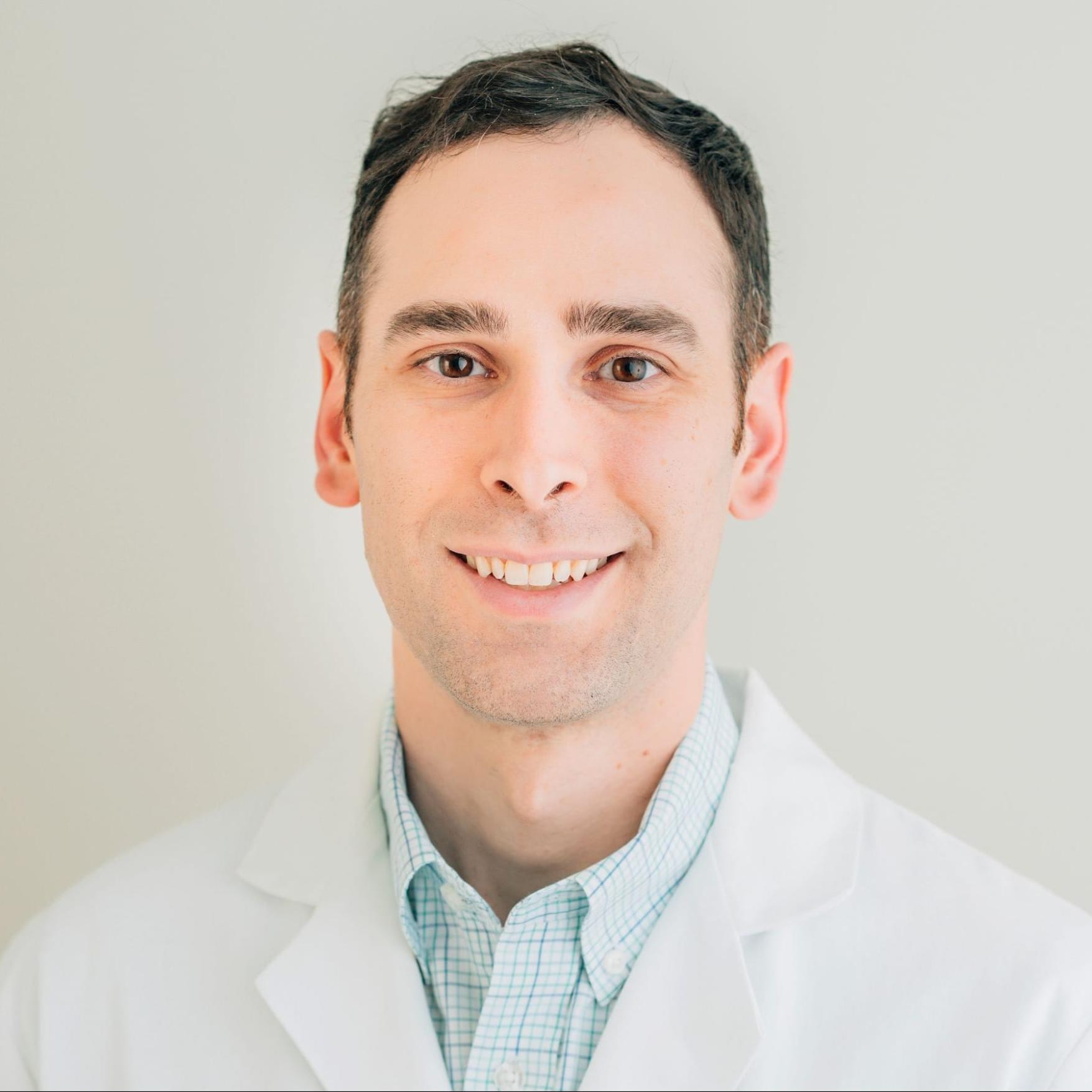Content
FDA approved for more than 25 years
Hair Loss After Weight Loss: Causes, Risks & Prevention

Weight loss has major health benefits, but it can come with a host of unexpected side effects, like having to buy new clothes and field questions about “how you did it,” along with physical side effects like loose skin. Even hair loss is possible with weight loss.
Hair loss after weight loss can be a temporary condition known as telogen effluvium. If you’ve had weight loss surgery or drastically changed your diet, weight loss and hair loss can go hand in hand, thanks to potential stress or nutrient deficiencies you’re experiencing.
Read on to learn more about the connection between weight loss and hair loss. We’ll also go over what you can do to prevent or treat hair loss from weight loss.
Content
If you’ve ever experienced rapid hair loss, you know how disorienting it can be to see excess hair swirling in the shower drain or find clumps in your comb.
Though weight loss is often associated with increased self-esteem, it may have the opposite effect if you lose your hair along with the weight. Consider hair loss from weight loss a marquee sign for the body: If you’re seeing it, there’s a good chance something’s going on inside.
Weight loss can sometimes be stressful emotionally and mentally. It can also be a taxing event on the body — the American Academy of Dermatology specifically as losing 20 pounds as a stressor that can cause hair loss.
Weight loss and hair loss can happen together for a few reasons. Of course, weight loss isn’t the only culprit for hair loss, and there are several causes of male hair loss.
Male pattern baldness is usually due to a mix of genetic factors and your body’s production of male sex hormones, specifically DHT (dihydrotestosterone), a by-product of testosterone. While every guy produces at least some DHT, some are more sensitive to its effects than others.
You can also lose hair because of a nutritional deficiency. And some men experience telogen effluvium, temporary hair loss caused by external factors like illness.
If you’ve recently lost a significant amount of weight and are noticing more hair on your pillow, know that hair loss with weight loss is possible. But the good news is it’s usually reversible.
Diet and Hair Loss
If you skip that third slice of pizza or have a salad instead of a burger, your hair probably isn’t going anywhere. But there is a link between diet and hair loss.
One study looked at 35 patients with female pattern hair loss. Low hemoglobin levels were observed in about 30 percent of participants, and low serum ferritin levels were found in just over 82 percent of cases.
Both hemoglobin and serum ferritin are associated with iron, and iron deficiency is sometimes associated with hair loss. That said, other studies point out that there’s no clear-cut evidence in existing medical literature linking iron deficiency to nonscarring alopecia).
Taking dieting or calorie restriction to extremes? A 2017 study showed that nutritional deficiency could impact hair structure and growth.
The study also showed that having a deficiency in any of the following can cause hair loss:
But you’re probably wondering why nutritional deficiency causes hair loss.
While it may not get your heart rate up or make you short of breath, growing hair actually takes a lot of energy, as hair follicle cells are the most rapidly dividing cells in the body. If you don’t get enough micronutrients from food, your body doesn’t have the fuel it needs to grow hair.
Bariatric Surgery and Hair Loss
Traumatic events and stress (you know, like major surgery) can also cause telogen effluvium, in which hair gets thrown into a resting state.
You’ve probably heard obesity referred to as an “epidemic,” which sounds dramatic. Still, research shows that if current trends continue, roughly 38 percent of adults will be overweight by 2030, and another 20 percent will be obese.
No numbers need to be crunched to know that’s a lot of people. Obesity comes with a slew of health risks, including type 2 diabetes, high blood pressure, cardiovascular disease and stroke.
For some people with obesity, bariatric surgery (which includes procedures like gastric bypass and sleeve gastrectomy surgeries) is necessary for losing weight and reducing the risk of certain health conditions.
It makes sense that shrinking the stomach to the size of a golf ball would make it tough to get all the nutrients you need. Hair loss after bariatric surgery can sometimes be caused by nutritional deficiencies, including a lack of protein (more on that later).
One systematic review of research found that about 57 percent of people experienced hair loss after bariatric surgery.
We’ll get back to bariatric surgery and hair loss in a second, but first, a quick interruption to recap the hair cycle (we promise this is relevant). The growth cycle of a hair follicle is divided into three stages: anagen (growth), catagen (transition) and telogen (rest).
Temporary hair loss can be caused by stress, illness, hormonal changes or medications. When it comes time for the hair to grow again, usually a few months after the stressful event, all the hairs that were resting will shed at once, causing noticeable (and sometimes alarming) hair loss.
So hair loss from bariatric surgery isn’t just about nutrition — it may also be telogen effluvium.
All about hair, here
Illness and Hair loss
Certain medical conditions and illnesses can cause hair loss in some people:
Androgenic alopecia (aka male pattern baldness) affects up to 50 percent of men.
Alopecia areata is an autoimmune disease that occurs when the immune system attacks hair follicles in the growth phase, sending them prematurely into the resting phase of the hair growth cycle.
Fungal infections of the scalp (sometimes called tinea capitis or scalp ringworm) can cause hair loss.
Autoimmune disorders that affect the thyroid (like Hashimoto’s and Graves) commonly cause hair loss. This tracks, as thyroid hormones are essential for the health of hair follicles. Antithyroid drugs can also cause hair loss.
Anorexia hair loss can be from nutritional deficiencies or extreme weight loss.
Protein Deficiency
Hair is primarily made up of protein. So adequate protein intake is essential for hair growth. Low protein intake (or protein deficiency) may lead to hair changes, including hair thinning and hair loss.
Research shows that high-protein diets can deliver 15 to 20 percent greater weight loss than lower-protein diets. Why? They keep you feeling full longer while preserving lean body mass.
Now for some good news: Weight loss hair loss is usually temporary and will stop once you address the underlying cause.
Though excessive weight loss can be dangerous, hair loss itself is not necessarily a health concern.
Telogen effluvium is a type of nonscarring, temporary alopecia triggered by certain life events and changes in your physical or psychological health.
As many as 95 percent of all cases of acute telogen effluvium go into remission. So once your stress levels settle (one more reason to finally try that yoga class) or you address the nutritional deficiency, you should notice hair regrowth.
Will you join thousands of happy customers?
4.5 average rating
There’s a big difference between hair loss and hair shedding. The American Academy of Dermatology says it’s normal to lose 50 to 100 hairs each day.
If you’re losing more than that or notice diffuse thinning – or patches of hair loss –it’s most likely male pattern hair loss. In rare cases, it could be hair loss from weight loss.
Here are some science-backed ways to prevent and slow hair loss from weight loss or other causes:
Finasteride (the active ingredient in Propecia®) is proven to slow hair loss and stimulate hair growth. Studies show this medication can reduce the amount of dihydrotestosterone (DHT, a male sex hormone that messes with the hair follicles so they can’t produce new hair) in the body by more than 90 percent.
Two’s a party when it comes to our topical finasteride & minoxidil spray. The spray is easy to use and combines two powerful ingredients (finasteride and minoxidil). Finasteride blocks DHT, and minoxidil is a vasodilator, meaning it brings blood to the scalp.
Prefer to be in a monogamous relationship with just one hair loss product? Minoxidil is available on its own as minoxidil foam or minoxidil liquid solution.
Biotin gummies and biotin supplements are most effective in people with a true deficiency. If you find out your levels are lower than they should be, they can help.
Hair loss treatments, delivered
Here’s the long and short of it (the article, not your hair).
Dropping a couple of pounds to fit into the suit you need to wear to a wedding next month isn’t going to make your hair fall out. However, in certain situations like crash diets or illnesses, weight loss can cause hair loss.
Hair loss from weight loss is typically temporary and often spurred by a stressful event, such as quickly losing 20 or more pounds.
Hair loss treatments can help get your hair back on track.
Check out these tips for making hair grow faster if you’re trying to speed up the growth process after temporary hair loss from weight loss.
Hims offers various hair loss treatments for men — and you can access them online following a consultation with a healthcare provider. Explore your options today.
25 Sources
- Guo, E., Katta R. (2017, Jan.). Diet and hair loss: effects of nutrient deficiency and supplement use. Retrieved from https://www.ncbi.nlm.nih.gov/pmc/articles/PMC5315033/
- Grymowicz, M., Rudnicka E., Podfigurna A., Napierala P., Smolarczyk R., Smolarczyk K., Ewa Rudnicka, Meczekalski B. (2020, Aug.) Hormonal Effects on Hair Follicles. Retrieved from https://www.ncbi.nlm.nih.gov/pmc/articles/PMC7432488/
- Lasikiewicz, N.,Myrissa K., Hoyland A., Lawton C.L. (2014, Jan.) Psychological benefits of weight loss following behavioural and/or dietary weight loss interventions. A systematic research review. Retrieved from https://www.sciencedirect.com/science/article/pii/S0195666313003991#s0070
- Aad.org (n.d) Do you have hair loss or hair shedding? Retrieved from: https://www.aad.org/public/diseases/hair-loss/insider/shedding
- Shashikant Malkud (2015, Aug.) A Hospital-based Study to Determine Causes of Diffuse Hair Loss in Women. Retrieved from https://www.ncbi.nlm.nih.gov/pmc/articles/PMC4576621/
- Treister-Goltzman Y., Yarza S., Peleg R.(2022, Mar). Iron Deficiency and Nonscarring Alopecia in Women: Systematic Review and Meta-Analysis. Retrieved from https://www.ncbi.nlm.nih.gov/pmc/articles/PMC8928181/
- Machado A., Weser G., Bischoff, S. (2012, June). Micronutrient deficiency in obese subjects undergoing low calorie diet. Retrieved from https://www.ncbi.nlm.nih.gov/pmc/articles/PMC3404899/
- Koliaki C., Spinos, T., Spinou, M., Brinia, M.E., Mitsopoulou, D. and Nicholas Katsilambros N. (2018, June). Defining the Optimal Dietary Approach for Safe, Effective and Sustainable Weight Loss in Overweight and Obese Adults. Retrieved from https://www.ncbi.nlm.nih.gov/pmc/articles/PMC6163457/
- National Institute of Diabetes and Digestive and Kidney Issues. (2023). Health Risks of Overweight & Obesity Retrieved from https://www.niddk.nih.gov/health-information/weight-management/adult-overweight-obesity/health-risks
- Zhang, W., Fan M., Wang, C., Mahawar K., Parmar C., Chen W., Yang W. (2021, Mar)Hair Loss After Metabolic and Bariatric Surgery: a Systematic Review and Meta-analysis. Retrieved from https://pubmed.ncbi.nlm.nih.gov/33675022/
- Hoover, E., Alhajj M., Flores, J.L., (2022, July). StatPearls.Physiology, Hair. Retrieved from https://www.ncbi.nlm.nih.gov/books/NBK499948/
- Asghar, F., Shamim, N., Farooque, U., Sheikh, H., & Aqeel, R. (2020). Telogen Effluvium: A Review of the Literature. Cureus, 12(5), e8320. Retrieved from: https://www.ncbi.nlm.nih.gov/pmc/articles/PMC7320655/
- Hughes EC, Saleh D. Telogen Effluvium. StatPearls [Internet]. StatPearls Publishing; 2021 Jan. Available from: https://www.ncbi.nlm.nih.gov/pmc/articles/PMC7320655/
- Ho CH, Sood T, Zito PM. Androgenetic Alopecia. [Updated 2020 Sep 29]. StatPearl. Retrieved from: https://www.ncbi.nlm.nih.gov/books/NBK430924/
- Popa, A., Carsote, M., Cretoiu, D., Dumitrascu M.C., Nistor, C.E., Sandru F. (2023, Feb). Study of the Thyroid Profile of Patients with Alopecia. Retrieved from https://www.ncbi.nlm.nih.gov/pmc/articles/PMC9918246/
- Thomas E., Kadyan R.S., (2008) ALOPECIA AREATA AND AUTOIMMUNITY: A CLINICAL STUDY. Retrieved from https://www.ncbi.nlm.nih.gov/pmc/articles/PMC2763714/
- Michael Sidiropoulos. (2007, Jan.) Anorexia Nervosa: The physiological consequences of starvation and the need for primary prevention efforts. Retrieved from https://www.ncbi.nlm.nih.gov/pmc/articles/PMC2323541/
- Aad.org (n.d). Can Covid-19 Cause Hair Loss? Retrieved from https://www.aad.org/public/diseases/hair-loss/causes/covid-19
- Asghar, F., Shamim, N., Farooque, U., Sheikh, H., & Aqeel, R. (2020). Telogen Effluvium: A Review of the Literature. Cureus, 12(5), e8320. Retrieved from: ncbi.nlm.nih.gov/pmc/articles/PMC7320655/
- Lee, W.S., Juhasz M., Mobasher P., Ekelem C., Mesinkovska N. (2018). A Systematic Review of Topical Finasteride in the Treatment of Androgenetic Alopecia in Men and Women. Retrieved from: https://www.ncbi.nlm.nih.gov/pmc/articles/PMC6609098/
- Kinter K., Anekar A., Biochemistry, Dihydrotestosterone. (2023, March). Retrieved from https://www.ncbi.nlm.nih.gov/books/NBK557634/
- Zito, P.M., Bistas, K.G., Syed K. (2022, Aug. 25). Finasteride- StatPearls. NCBI Bookshelf. Retrieved from https://www.ncbi.nlm.nih.gov/books/NBK513329/
- Badri, T., Nessel, T., Kumar, D. (2023). Minoxidil-StatPearls. Retrieved from https://www.ncbi.nlm.nih.gov/books/NBK482378/.
- Olsen, E., Dunlap F., Funicella T., Koperski J., Swinehart J., Tschen E., Trancik, R. (2002, Sept.) A randomized clinical trial of 5% topical minoxidil versus 2% topical minoxidil and placebo in the treatment of androgenetic alopecia in men. Retrieved from https://pubmed.ncbi.nlm.nih.gov/12196747/
- Al Aboud AM, Crane JS. Tinea Capitis. (2023). Treasure Island (FL): StatPearls Publishing. Retrieved from https://www.ncbi.nlm.nih.gov/books/NBK536909/
Editorial Standards
Hims & Hers has strict sourcing guidelines to ensure our content is accurate and current. We rely on peer-reviewed studies, academic research institutions, and medical associations. We strive to use primary sources and refrain from using tertiary references. See a mistake? Let us know at [email protected]!
This article is for informational purposes only and does not constitute medical advice. The information contained herein is not a substitute for and should never be relied upon for professional medical advice. Always talk to your doctor about the risks and benefits of any treatment. Learn more about our editorial standards here.
Knox Beasley, MD
Dr. Knox Beasley is a board certified dermatologist specializing in hair loss. He completed his undergraduate studies at the United States Military Academy at West Point, NY, and subsequently attended medical school at Tulane University School of Medicine in New Orleans, LA.
Dr. Beasley first began doing telemedicine during his dermatology residency in 2013 with the military, helping to diagnose dermatologic conditions in soldiers all over the world.
Dr. Beasley is board certified by the American Board of Dermatology, and is a Fellow of the American Academy of Dermatology.
Originally from Nashville, TN, Dr. Beasley currently lives in North Carolina and enjoys spending time outdoors (with sunscreen of course) with his wife and two children in his spare time.
Education
Bachelor of Science, Life Sciences. United States Military Academy.
Doctor of Medicine. Tulane University School of Medicine
Training
Dermatology Residency. San Antonio Uniformed Services Health Education Consortium
Certifications
Board Certified. American Board of Dermatology
Publications
Wilson, L. M., Beasley, K. J., Sorrells, T. C., & Johnson, V. V. (2017). Congenital neurocristic cutaneous hamartoma with poliosis: A case report. Journal of cutaneous pathology, 44(11), 974–977. https://onlinelibrary.wiley.com/doi/10.1111/cup.13027
Banta, J., Beasley, K., Kobayashi, T., & Rohena, L. (2016). Encephalocraniocutaneous lipomatosis (Haberland syndrome): A mild case with bilateral cutaneous and ocular involvement. JAAD case reports, 2(2), 150–152. https://www.ncbi.nlm.nih.gov/pmc/articles/PMC4867906/
Patterson, A. T., Beasley, K. J., & Kobayashi, T. T. (2016). Fibroelastolytic papulosis: histopathologic confirmation of disease spectrum variants in a single case. Journal of cutaneous pathology, 43(2), 142–147. https://onlinelibrary.wiley.com/doi/10.1111/cup.12569
Beasley, K., Panach, K., & Dominguez, A. R. (2016). Disseminated Candida tropicalis presenting with Ecthyma-Gangrenosum-like Lesions. Dermatology online journal, 22(1), 13030/qt7vg4n68j. https://pubmed.ncbi.nlm.nih.gov/26990472/
Kimes, K., Beasley, K., & Dalton, S. R. (2015). Eruptive milia and comedones during treatment with dovitinib. Dermatology online journal, 21(9), 13030/qt8kw141mb. https://pubmed.ncbi.nlm.nih.gov/26437285/
Miladi, A., Thomas, B. C., Beasley, K., & Meyerle, J. (2015). Angioimmunoblastic t-cell lymphoma presenting as purpura fulminans. Cutis, 95(2), 113–115. https://pubmed.ncbi.nlm.nih.gov/25750965/
Beasley K, Dai JM, Brown P, Lenz B, Hivnor CM. (2013). Ablative Fractional Versus Nonablative Fractional Lasers – Where Are We and How Do We Compare Differing Products?. Curr Dermatol Rep, 2, 135–143. https://idp.springer.com/authorize?response_type=cookie&client_id=springerlink&redirect_uri=https%3A%2F%2Flink.springer.com%2Farticle%2F10.1007%2Fs13671-013-0043-0
Siami P, Beasley K, Woolen S, Zahn J. (2012). A retrospective study evaluating the efficacy and tolerability of intra-abdominal once-yearly histrelin acetate subcutaneous implant in patients with advanced prostate cancer. UroToday Int J, June 5(3), art 26. https://www.urotoday.com/volume-5-2012/vol-5-issue-3/51132-a-retrospective-study-evaluating-the-efficacy-and-tolerability-of-intra-abdominal-once-yearly-histrelin-acetate-subcutaneous-implants-in-patients-with-advanced-prostate-cancer.html
Siami P, Beasley K. (2012). Dutasteride with As-Needed Tamsulosin in Men at Risk of Benign Prostate Hypertrophy Progression. UroToday Int J, Feb 5(1), art 93. https://www.urotoday.com/volume-5-2012/vol-5-issue-1/48691-dutasteride-with-as-needed-tamsulosin-in-men-at-risk-of-benign-prostatic-hypertrophy-progression.html





